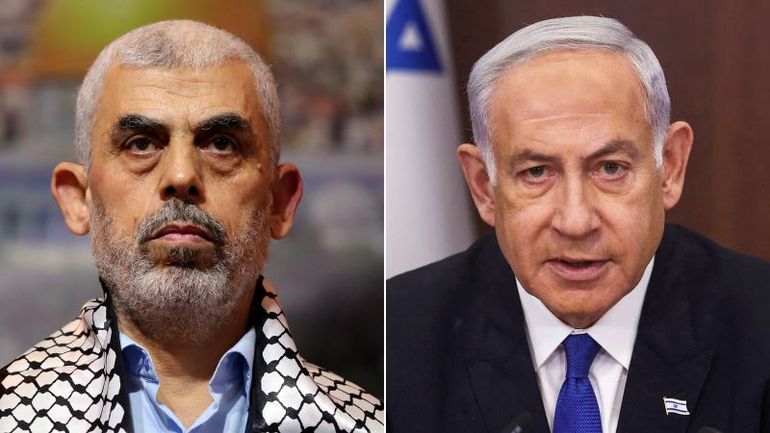
ICC Pursues Arrest Warrants for Sinwar and Netanyahu on War Crimes Allegations from October 7 Attack and Gaza Conflict

The International Criminal Court is pursuing arrest warrants against Sinwar and Netanyahu for alleged war crimes and crimes against humanity related to the October 7 attack on Israel and the ensuing conflict in Gaza.
The International Criminal Court is pursuing arrest warrants for Hamas leader Yahya Sinwar and Israeli Prime Minister Benjamin Netanyahu for alleged war crimes and crimes against humanity related to the October 7 attacks on Israel and the subsequent conflict in Gaza. The court's chief prosecutor, Karim Khan, shared this information in an exclusive interview with CNN's Christiane Amanpour on Monday.
Khan also mentioned that the ICC is looking to issue warrants for Israel's Defense Minister Yoav Gallant, along with two other prominent Hamas figures - Mohammed Diab Ibrahim al-Masri, also known as Mohammed Deif, the leader of the Al Qassem Brigades, and Ismail Haniyeh, the political leader of Hamas.
The warrants against Israeli politicians are significant because it is the first time the ICC has targeted a top leader of a close ally of the United States. This decision puts Netanyahu in a similar position as Russian President Vladimir Putin, who also had an ICC arrest warrant issued against him for Moscow's actions in Ukraine.
Now, a panel of ICC judges will review Khan's request for the arrest warrants.
Khan mentioned that charges against Sinwar, Haniyeh, and al-Masri involve serious crimes like extermination, murder, taking hostages, rape, and sexual assault in detention.
He also highlighted the shocking events that took place on October 7th, where individuals were forcefully taken from their bedrooms, homes, and various kibbutzim in Israel. Khan expressed how much suffering people have endured as a result.
The charges against Netanyahu and Gallant, as stated by Khan to Amanpour, include causing extermination, causing starvation as a method of war, denying humanitarian relief supplies, and deliberately targeting civilians in conflict.
When reports emerged last month about the ICC chief prosecutor considering this action, Netanyahu responded by stating that any ICC arrest warrants against senior Israeli government and military officials would be historically outrageous. He also emphasized that Israel has an independent legal system that thoroughly investigates all violations of the law.
Khan responded to Amanpour's question about Netanyahu's comments by stating, "Nobody is above the law." He advised Israel that if they disagree with the ICC, they have the option to challenge the jurisdiction by presenting their objections to the court judges.
Israel and the United States are not part of the ICC. Despite this, the ICC says it has authority over Gaza, East Jerusalem, and the West Bank because Palestinian leaders agreed to follow the court's rules in 2015.
Stay tuned for more updates on this developing story.
Editor's P/S:
The recent announcement by the International Criminal Court (ICC) to pursue arrest warrants for both Hamas leader Yahya Sinwar and Israeli Prime Minister Benjamin Netanyahu marks a significant development in the ongoing conflict between Israel and Palestine. The ICC's decision to target a top leader of a close US ally, Israel, is unprecedented and has drawn mixed reactions.
While some view the ICC's actions as a necessary step towards accountability for alleged war crimes and crimes against humanity, others express concerns about the potential impact on peace negotiations and the rule of law within Israel. The charges against Netanyahu and other Israeli officials, including causing extermination and denying humanitarian relief supplies, raise questions about the legality of Israel's actions during the October 7 attacks on Israel and the subsequent conflict in Gaza. The ICC's decision highlights the need for impartial investigations and fair trials to address human rights violations and ensure justice for victims on both sides of the conflict.











